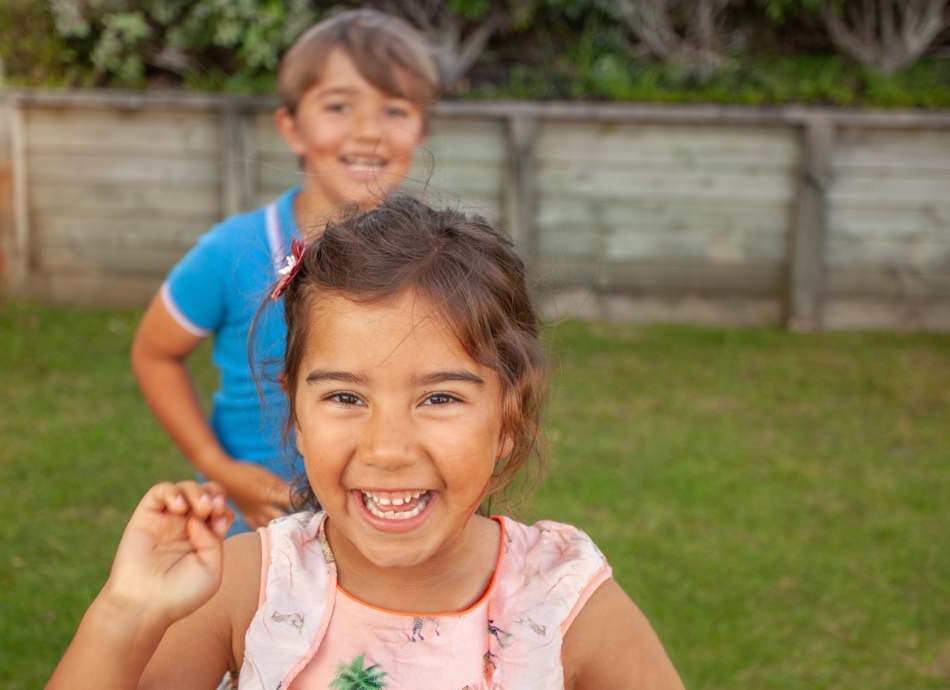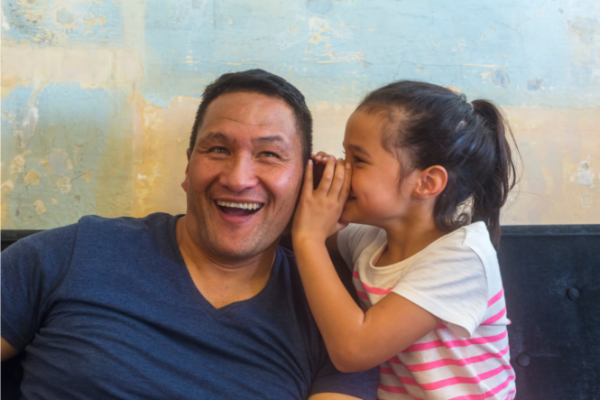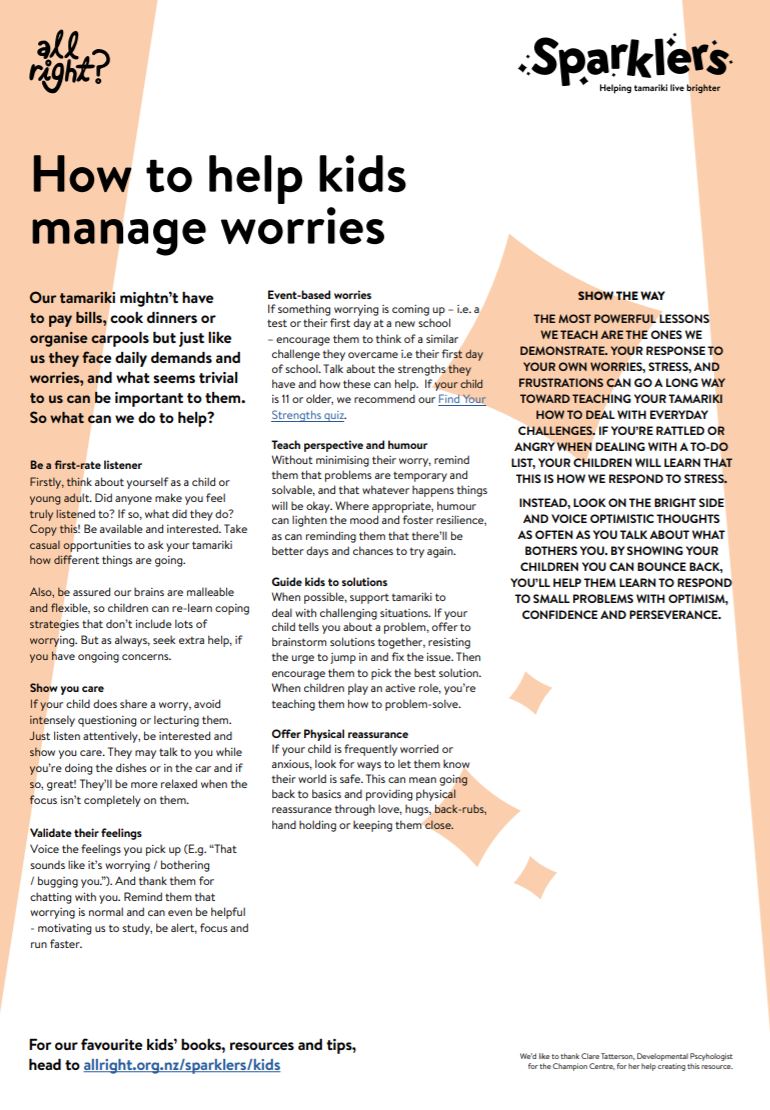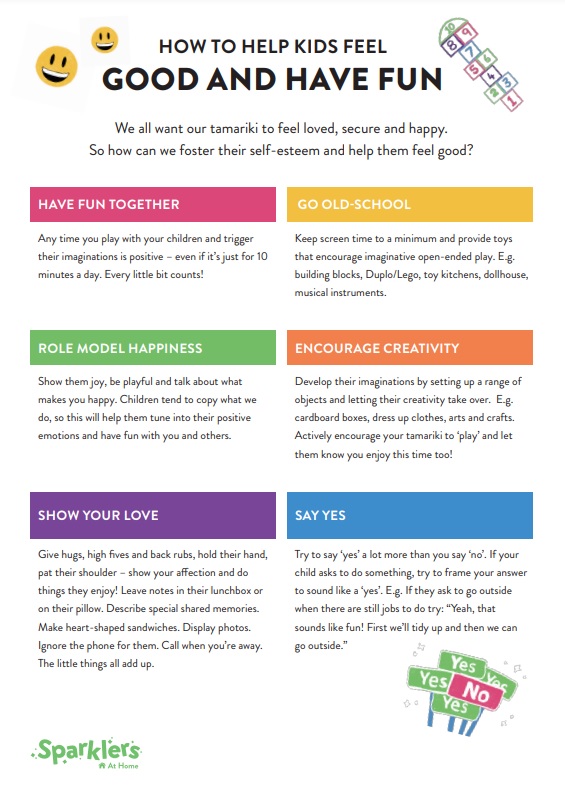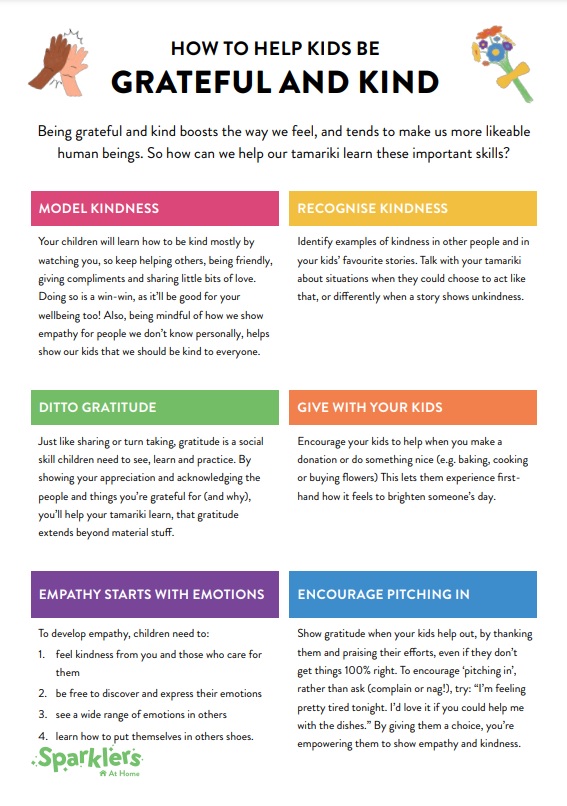Just listen – stressed kids' plea to parents(external link) NZ Herald
Family change(external link) Skylight, NZ
Common Ground(external link) Common Ground was a New Zealand project that aimed to help parents, families, whānau and friends to support young people to manage hard times and enjoy happier lives.
Childhood trauma and the brain(external link) (video) UK Trauma Council, UK
Healthy development of a child's brain(external link) (video) Dr Mike Evans, Canada
Apps
Mental health and wellbeing apps for teenagers and young people
Resources
How to help kids keep calm(external link) All Right? and Sparklers, NZ Experiencing frustration, disappointment, fear and jealousy is challenging, even as adults. This guide explores how can we help our tamariki understand and manage strong emotions.
How to help kids manage worries(external link) All Right? and Sparklers, NZ Our tamariki mightn’t have to pay bills, cook dinners or organise carpools but just like us they face daily demands and worries, and what seems trivial to us can be important to them. This guide explores what we can do to help tamariki manage worries.
How to help kids feel good and have fun(external link) All Right? and Sparklers, NZ Tamariki need the basics of life – like food, warmth, shelter and clothing – but we ultimately want them to feel loved, secure and happy. This guide explores how you can foster their self-esteem and help them feel good.
How to help kids be grateful and kind(external link) All Right? and Sparklers, NZ Being grateful and kind boosts the way you feel, and tends to make you a more likeable human being. This guide explores how you can help tamariki learn these important skills.
How to help your kids ... sleep!(external link) All Right? and Sparklers, NZ When kids have sleep issues, it’s challenging … for everyone! But rest assured, things can improve. This guide shares some tips on how you can help.
Looking after yourself – dads(external link) All Right? and Sparklers, NZ Being a dad can be awesome … it can also be challenging, confusing, frustrating and tiring. As such, dads have got to look after yourselves.
Looking after yourself – mums(external link) All Right? and Sparklers, NZ Mums often prioritise everything and everybody before yourselves. So first up, recognise you still matter!
How to help your kids with diagnoses and differences(external link)All Right? and Sparklers, NZ Having a child with differences can be tricky for you and your child. This guide shares some things to try, based on the most up-to-date research.
How to talk your teen out of bad decisions(external link) All Right? and Sparklers, NZ Tattoos, sex, drugs, alcohol ... this guide shares top tips for building trust, encouraging conversation and empowering your teen to make smart choices around ‘the big stuff’.
How can I help my kids retain our culture?(external link) All Right? and Sparklers, NZ As new immigrant parents, it can be both exciting and worrying when your children start to integrate into New Zealand life. This guide explores how to help them along, while retaining your family culture and beliefs.
How to get it right when kids come out or identify as another gender(external link) All Right? and Sparklers, NZ Supporting kids to be who they truly are can make a huge difference to their wellbeing. This guide shares top tips for staying their greatest source of support.
Helping your teens navigate social media(external link) All Right? and Sparklers, NZ Internet use can be a big concern for parents. This guide explores tips for teaching your kids to make good choices and stay safe (without having to go into battle)!
How do I get my kids to listen, talk, help out and focus on what really matters?(external link) All Right? and Sparklers, NZ Teens need to develop a certain amount of independence. This guide shares some quick ideas for fostering this while encouraging them to talk, listen and be at their best.
Parenting babies – up to 1 year(external link) Parenting Help, NZ
Parenting toddlers – 1 to 3 years(external link)Parenting Help, NZ
Parenting preschoolers – 3 to 5 years(external link) Parenting Help, NZ
Parenting school age – 6 to 12 years(external link) Parenting Help, NZ
Parenting teenagers – 13 to 18 years(external link) Parenting Help, NZ
References
- The 10 things kids need most(external link) NZ Child, Youth and Family
- Wellbeing at home and school(external link) Ministry of Education, NZ
- Ages and stages(external link) Parent Help, NZ


